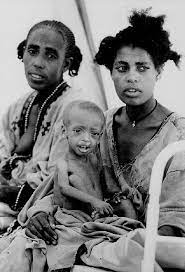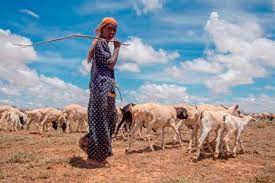Abstract
The 1983-85 Ethiopian Great Famine was one of a severe form of global famine ever documented in Africa as well as the recent history of the world. Although the impact was felt across the country, the epicenter of the famine was in the Northern two provinces Tigray, and Wollo. In common famine scale measures, it was rated as “Great Famine” due to its catastrophic impact and its scale compared to other famines that had ever happened in Ethiopia or Africa.
Famine exposure during early life adversely affects the two extreme ages of human growth and development; the first 1000 days of life and adolescence. In these two periods, there exist fast growth and development of human body requiring adequate nutritional support; hence, any alteration could bring far-reaching consequences. Global famines such as the “Great Ethiopian Famine of the 1983-85” can be taken as natural exposure to investigate the long-term assaults of early-life nutrition deprivations during adulthood. Hence, this PhD dissertation was aimed at investigating the long-term impact of early-life famine exposure on adulthood metabolic, anthropometric and cognitive consequences. The theory of Developmental Origins of Health and Disease (DOHaD) was used to design studies used in this dissertation. According to this theory, nutritional disruption in early life, particularly in the prenatal, first two years of postnatal life and adolescence period could result in various adverse health outcomes in later life.
Prior to the conduct of the main research work, we have explored the global evidence through a systematic review approach on the association of famine exposure during early life with non-communicable chronic diseases, anthropometric outcomes and neuropsychiatric conditions in adults. Furthermore, a qualitative study was conducted among survivors in order to understand the famine context from the victims. Then we have employed a quantitative historical cohort study design to collect data from March 15 to April 30, 2019 in North Wollo Zone, Raya Kobo district, Northeast.



